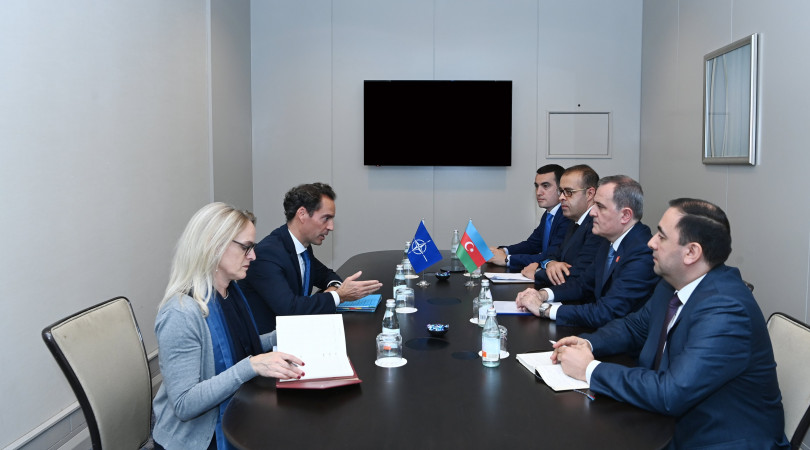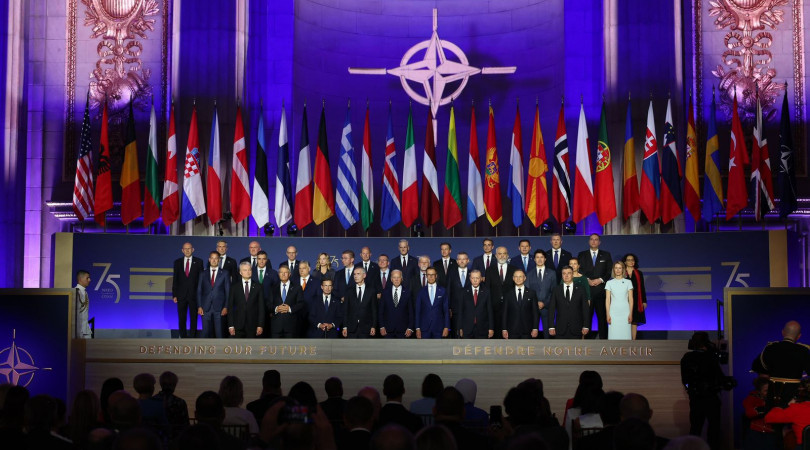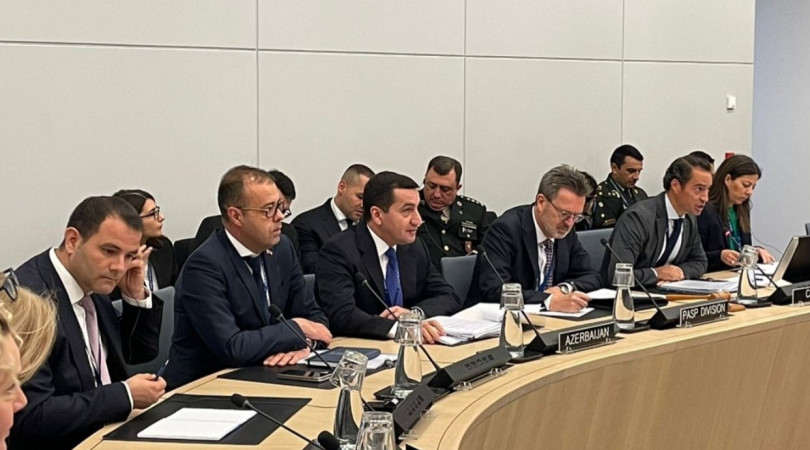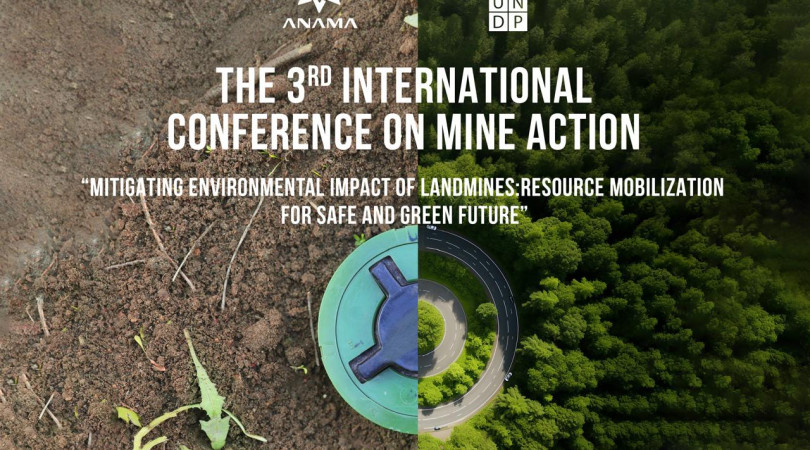Trust Fund Projects
The activities related to the disposal of dangerous materials, mines and other explosive ordnances, left after the collapse of the Soviet Union, play a significant role in the practical cooperation between Azerbaijan and NATO. In this regard, it is worth of mentioning the projects like Mélange, Saloglu and Jeyranchel implemented (or being implemented, e.g. Jeyranchel) together with NATO.
Mélange project
Mélange is a highly toxic substance that was used by the former USSR’s armed forces as one of the two components to propel small- and medium range missiles. There were 1.400 tons of dangerous rocket fuel inherited from the stocks of the former Soviet Union stored in aluminum tanks which had been gradually corroding, posing a serious threat to public health and environment.
Azerbaijan requested NATO’s assistance in destroying the mélange and the NATO Science for Peace and Security (SPS) Programme supported to launch a project for this purpose. The budget of this project (2.2 million Euros) was fully covered by NATO.
The NATO Maintenance and Supply Agency (NAMSA) was designated as the project's executing agency and in two years starting from 2006 a mobile mélange treatment plant constructed in Azerbaijan neutralized in Alat (Garadagh district) and Mingachevir respectively 950 and 350 tons of mélange.
NATO/PFP Saloglu Trust Fund project
The Soviet military ammunition warehouse in Aghstafa district of Azerbaijan was the largest in the South Caucasus. In 1991, the warehouse was destroyed by the departing Soviet troops.
As the result of the explosion at the site, thousands pieces of unexploded ordnances (UXO) were scattered over a large area of 4,400 hectares continuously posing a serious humanitarian, socio-economic and environmental threat to the local population. Since 1991, 152 accidents with 32 people killed were reported.
Upon the request of Azerbaijan a new PfP Trust Fund project aiming at addressing the UXO problem in Saloglu was inaugurated in December 2005. NAMSA was designated the executing agency and Azerbaijan National Agency for Mine Action (ANAMA) was awarded as the project contractor. The project aimed at locating and destroying all surface and immediate subsurface UXOs and explosive hazards in and around the former military base and consequently making the Saloglu site completely safe for local population.
The project was implemented in three phases between 2005 and 2011. It was closed with the ceremonies held in Baku and Saloglu in July 2011 and at a NATO Political and Partnerships Committee (PPC) meeting in October 2011.
Considering this project a high priority the Government of Azerbaijan provided its continued support to the project and together with Turkey, the Lead Nation made substantial efforts to involve donors during all three phases. The total cost of the project was 3,2 million euros. Azerbaijan covered 50% of the costs for the third phase.
Turkey has acted as the Lead Nation and besides its financial and in-kind contributions Turkey has been instrumental in raising the required funds for the project. Other contributing nations and international organizations were: Australia, Bulgaria, Czech Republic, Finland, Island, Italy, Japan, Latvia, Lithuania, Luxembourg, Norway, Slovenia, Switzerland, USA and UNDP.
Saloglu has been one of the biggest projects for the number of the cleared and destroyed UXOs. This project has also been unique in terms of the substantial financing by the host nation and contributions by a wide range of counties, including NATO nations, PFP countries, UNDP and NATO’s global partners.
Jeyranchel NATO Partnership Trust Fund Project
Given that a considerable portion of the national territories remains contaminated with mines and UXOs, ANAMA is determined to continue the mine clearance endeavor to make the country completely free from this perilous problem. To this end, a new Trust Fund project aimed at cleaning 64 km2 areas from mines and UXOs in three phases has been implementing in Jeyranchel since 2012. The Project is being implemented with NATO Support Agency (NSPA) – former NAMSA. The first phase of the Project (names as Jeyranchel Clearance Project or JCP) covered 19 km2 out of totally contaminated area and was completed in the July 2014 with an official closing ceremony in Baku.
The second phase of the Project was launched immediately after successfully implementing the first phase of the Project in July 2014. Currently, clearance operations within the second phase have been finalized. The Project is expected to be extended to the other remaining affected territory and currently preparation for the start of the third phase is ongoing.
The Government of Azerbaijan has already contributed 50% of the total project cost of the first and second phases and pledged to support the half of the last phase as well. The USA is the Lead Nation of the Project and has made a significant financial contribution. Along with Azerbaijan and the US, United Kingdom, Norway, Switzerland, Turkey, Japan, Italy and Iceland have also contributed to the budget of the Project.


















